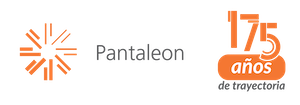ALLIANCES THAT PROMOTE DEVELOPMENT
The sugarcane industry is one of the main economic activities in Mexico, representing the source of direct income for close to 440,000 people and indirect benefits for more than 2.2 million people; in the state of Veracruz, it is considered the main source of income for small producers.
Recognizing the importance of working hand in hand with our sugarcane suppliers to ensure the sustainability of our value chain, we created a program to support the more than 7,400 small producers that supply us in Mexico. The Extensionism Program seeks to transfer technology and encourage them to adopt good agricultural practices to increase their productivity, raising their income and consequently their quality of life. This program goes hand in hand with Sustainable Development Goal 8 of the United Nations, whose goal is to promote inclusive and sustainable economic growth by promoting employment and decent work for all.
In October 2021, we signed a collaboration agreement between Panuco Mill, Solidaridad-Panamericaña, Bayer, and the leaders of sugarcane associations to generate a platform that includes all the actors in the value chain, focused on the adoption of better agricultural practices for the 3,672 sugarcane producers of Panuco Mill for three years. Under this agreement we are developing three axes:
- Socioeconomic and Productivity Study
- Training for Technicians and Producers
- MAS CAÑA Program

Key Components
Socioeconomic and Productivity Study: To gather first-hand information about the socioeconomic and productive conditions of our growers, the Solidaridad team generated and conducted 3,378 interviews, representing 92% of sugarcane growers. This information serves as a diagnostic baseline to prioritize areas of support and quantify progress.
Statistical analyses were carried out to determine trends, percentages, and proportions, gathering information with which to establish strategies and initiatives for inter-institutional support to improve the quality of life of suppliers and their families. Some important data include age range, schooling, basic services, participation by gender, reasons for low productivity, types of controls and agronomic practices. It is important to note that there has been an increase in the participation of women in this sector, who make up 30% of Panuco Mill´s suppliers.


Diploma in Efficient and Sustainable Sugarcane Production for Technical Producers: to enrich knowledge and align technical criteria in the management of sugarcane cultivation, a diploma course was given to 90 technicians and producers, through training in the knowledge of sugarcane cultivation.
Due to the pandemic, the course was conducted in a hybrid manner, culminating in September 2022. Some of the topics include integrated weed management, soil preparation, occupational health and safety, basic irrigation principles, fertilization, and mechanized harvesting, among others.


MAS CAÑA
MAS-CAÑA Sugarcane Sustainable Agricultural Improvement Project: seeks to provide technical assistance and training to 3,672 sugarcane growers in Panuco Mill, covering 1,200 suppliers per year. The program consists of 3 axes:
- Training: contains 8 topics taught in 10 venues strategically located to maximize attendance. The support material was designed for each topic, adapted to field conditions. To ensure the understanding and application of what has been learned, a theoretical part of the training is also provided using only the resources available in each area.
Technical Assistance: through strategic contacts the team was introduced to the communities, visits were carried out to learn about the conditions of the crops and slowly gain their trust. Once the relationship is established, the technician makes tailor-made plans for each supplier, adapting to their particular conditions (resources, supplies and land conditions).
The suppliers receive support from the technicians in the implementation of these new practices and continuous follow-up to corroborate improvements. This year we had 1,226 first visits and 471 follow-up visits.
- Demonstrative Plots: to introduce good agricultural practices, it is important to achieve an organic adoption and promote a change of culture, therefore, plots are established according to the needs of the area, to demonstrate in a tangible way to suppliers how they could improve their crop following the recommendations of the technicians. To date, 83 demonstrative plots have been established covering topics such as weeds, planting, irrigation, pests, and fertilization.


It´s been only eight months since we began the program´s implementation and we have already achieved small changes that will result in more productive and sustainable crops. Some of the best practices that have already been adopted by the suppliers are:
- PH and water hardness management in herbicide application
- Use of surfactants in herbicide applications
- Timely use of pre-emergent herbicides
- Spray equipment calibration
- Correct and timely application of fertilizers
- Efficient use of irrigation
- Soil preparation for planting
- Evaluation and use of seedbeds
- Knowledge and adoption of new agricultural technologies
“I used to plant sugarcane without any advice and hoped for the best. Climate change and droughts have affected us a lot. Now, thanks to the training received by Solidaridad, I have the knowledge to improve my crops. With the improved productivity of my sugarcane, I would like to be able to improve my house and have savings.”
Luis Antonio González Flores, a small sugarcane grower
So far, the program has demonstrated the potential impact it could have on the quality of life of our suppliers and their families. On the one hand, by reducing costs through teaching them a more efficient resource allocation and through the application of different products and methodologies, to increase their productivity. On the other hand, through the information gathered in the socioeconomic surveys, we are already working with different organizations to implement a social development plan. This will not only encourage suppliers to join the program and improve their productivity, but additionally we seek to generate integral development programs to improve their living conditions and promote socioeconomic development in the area.

